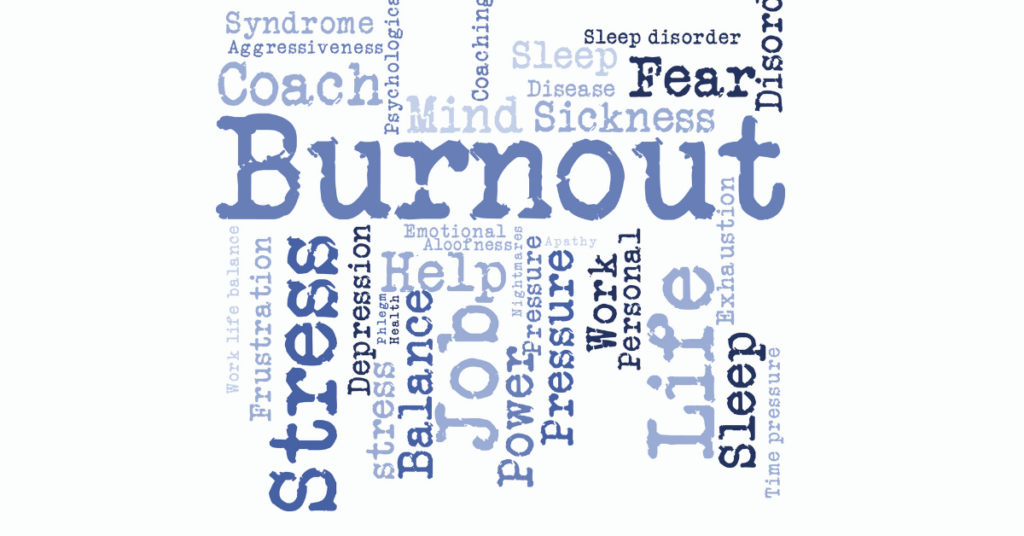Being a parent is demanding and never ceasing. While it has so many rewards, the challenges of parenting can be overwhelming at times. That can lead to parental burnout. When you are a parent of a child with autism and ADHD, the risk is even greater because for many the demands are greater. But how can you overcome parental burnout?
I can remember when our son J was in preschool and early elementary school, and it was especially exhausting for me as a parent. He demanded constant attention and focus. J’s behavior issues seemed to multiply every week. It was truly a difficult time for me and our whole family. Between a very demanding job and caring for J and his brother, I felt like I never had any downtime. Even though we had some support, it was not enough for what we truly needed. It was a really hard time.
As I look back at that time, I now wonder if I was experiencing parental burnout. As I learned about the signs, I can see that I had many of them. Thankfully, I somehow found a way through it. Yet, I wish I had known that was what I was experiencing so that I could have been more proactive about getting help and doing the things I needed to get better sooner.

What is parental burnout?
A study published in Clinical Psychological Science in 2019 defined parental burnout as a “condition [that] is characterized by an overwhelming exhaustion related to one’s parental role, an emotional distancing from one’s children, and a sense of parental ineffectiveness.”
Parental burnout happens to many parents at one time or another, and it can last for a short period of time or for much longer. It is similar to work burnout, but instead it comes from the overwhelming demands of being a parent and not being able to take a true break from those demands.
Because parenting is supposed to be so fulfilling and rewarding, parents don’t want to admit they are burnt out. It has a stigma attached to it, and it makes it harder to overcome.
Why parents of children with autism are vulnerable to burnout
Parents of children with autism have additional demands placed on them. We worry about organizing and coordinating all of our child’s therapy, medicines, and other care needs. We are on high alert for meltdowns, and we try to prevent them by helping our children manage their sensory issues. On a daily basis, we have high levels of stress from managing our autistic child’s behavior issues. As parents, we are checking in with our child’s school constantly to make sure their education needs are being met and their individualized education plans (IEP) are being followed. All of this leads to parents of children with autism hitting a breaking point for parental burnout faster.
A study from the University of Wisconsin-Madison found that mothers of children with autism have similar stress levels as combat soldiers. The study found that mothers of autistic children spent two additional hours each day caring for their children compared to mothers who did not have a child with autism. It also found that on any given day, mothers of autistic children were more than two times likely to tired as well as three times more likely to experience a stressful event.
Another study published in Frontiers in Psychology in 2018 looked at the factors associated with maternal burnout of mothers with children with autism compared with mothers of children with different levels of learning disabilities. This study suggested that mothers who worked part-time or more than part-time (not full time) or who were unemployed were at the greatest risk of having parental burnout. Surprisingly, it also noted mothers who were married or had a co-parent were at greater risk of burnout, and those who did not use problem-focused coping also had a higher risk.
Several studies in the 2000s have confirmed the high risk of depression and anxiety for mothers of children with autism. This also can contribute to parental burnout, or even be a consequence of uncontrolled parental burnout.

Signs of parental burnout
How do you know if you are experiencing parental burnout? Some of the primary signs include:
- Intense mood swings
- Lack of energy
- Loss of sleep
- Loss of interest in hobbies or activities
- Singular focus on your child
Consequences of parental burnout
The 2019 Clinical Psychological Science research took a closer look at the consequences of parental burnout. This included two longitudinal studies that surveyed parents three times in one year to better understand burnout. The authors found the following potential consequences of parenteral burnout.
- Risk of depression – Parents who experienced burnout were at greater risk of depression.
- Escape idealism – Some parents had frequent fantasies about escaping parenting and all its stressors.
- Psychological and Physical Aggression – Some parents resorted to aggression such as insults, threats, spanking and slapping.
- Neglect – Some parents were at risk for neglecting their children.
Why self-care is so important for burnout prevention
Many of us feel guilty for taking time for ourselves. However, you cannot take good care of your child if you are feeling depleted and empty. Self-care is truly a must for being able to provide the best care for your child. Never feel guilty about taking some time to recharge your own battery. You and your family deserve a well-rested parent who can handle the daily stress of life. The consequences of burnout are too great.
Ways to overcome parental burnout

If you feel like you are burning out, how can you overcome parental burnout? Try the following, and most importantly, seek professional help if you are too overwhelmed or the self-care options do not work.
1. Ask your spouse/partner, family member or friend to watch your child so that you can have some much-needed time for yourself. Whether you need a nap, reading time or just being able to grocery shop by yourself, ask for someone else to watch your child so that you can have some alone time. You need a break from constantly being on call to care for your child.
2. Pay attention to your diet. Be sure you are fueling your body with healthy food that will give you the nutrition and energy that you need to meet the daily demands as a parent.
3. Work in exercise, even a walk around your neighborhood. Exercise is a big de-stressor, so make time to move every day. A walk in your neighborhood counts. Yoga is another good option for reducing stress, and you can find many free yoga workouts online or on YouTube. I used to go to our local YMCA and have my children cared for in their Child Watch while I worked out. It was probably one of the best things I would do for myself each Saturday. Not only could I exercise, but I also had a break from childcare.
4. Focus on your identity outside of being a parent. Being a parent is only part of who you are. Spend some time thinking about who you are besides being a parent. Looking at your identity more holistically can help you better engage with yourself.
5. Read a book or do another activity that you enjoy. As part of your self-care, reading a book or participating in a hobby you enjoy can help recharge your battery. Listening to music or playing an instrument may help you too.
6. Fix your sleep schedule. Lack of sleep is a big contributor to parental burnout. For those of us with children who have autism and ADHD, many times we are helping our children fall and stay asleep all night. Sleep problems are prevalent among our kids, and that affects our sleep as well. Talk to your child’s doctor about any sleep issues your child is having, and also talk to your own doctor about any sleep problems issues you are having.
7. Practice mindfulness. Being mindful means you are in the present. Sometimes, we are too worried about our future or too focused on our past. By being in the present, we can stay focused on the here and now, which can help our stress levels. Try these five simple mindfulness exercises.
7. Try journaling or meditation. Sometimes, we need to get our worries out of our head or quiet our minds. Journaling and meditation could help.
8. Set up a support system. A support system is crucial, especially for parents of children with autism and ADHD. I try to look at support more holistically and ensure I have a dream team set up to help care for my child.
9. Know when to seek professional help. When parental burnout is too overwhelming or evolves into depression and/or anxiety, please reach out to a professional therapist or doctor for help. Don’t try to overcome it alone.
Have you struggled with parenteral burnout? How did you overcome it? Leave a comment below so that we can share and support one another on this journey.
References:
Lebert-Charron, A. et al. “Maternal Burnout Syndrome: Contextual and Psychological Associated Factors.” Frontiers in Psychology. 2018. 9: 885. https://pubmed.ncbi.nlm.nih.gov/29922203/
Mailick Seltzer, M. et al. “Maternal Cortisol Levels and Behavior Problems in Adolescents and Adults with ASD.” Journal of Autism Development Discord. 2010. 40:4. 457-469.
Mikolajczak, M., Gross, J. and Roskam, I. “Parental Burnout: What Is It, and Why Does It Matter?” Clinical Psychological Science. 2019. 7:6. https://doi.org/10.1177%2F2167702619858430







